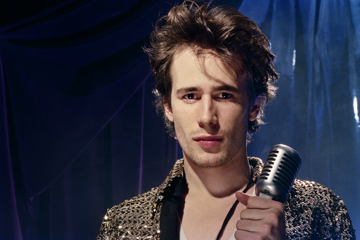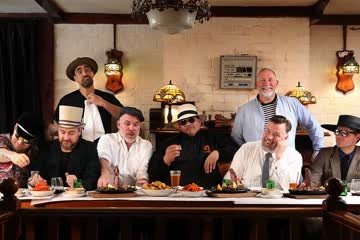Exclusive: Three Promotions As Cedar Mill Group Enters New Growth Phase
Events consultants and stadium/amphitheatre developer Cedar Mill Group promoted three senior executives.

Cedar Mill Group (Supplied)
On the eve of two busy years, major events consultants and stadium/amphitheatre developer Cedar Mill Group promoted three senior executives.
Ewen Craig, Director of Commercial Operations, takes on the Head of Cedar Mill Group role, coming from a 30-year background with promoters Michael Coppel, Paul Dainty, Michael Chugg and Live Nation.
His track records include V-fest and Download festivals, and P!nk, Bruno Mars, Taylor Swift, Fleetwood Mac, Paul McCartney, Rolling Stones and Michael Jackson tours.
Project Manager David Fortescue becomes Manager of Cedar Mill Events, tapping on his past at Sydney’s Qudos Bank Arena, TEG Dainty and TEG Live, and as Project Manager for the Beyond The Valley festival and Melbourne Esports Open.
Steve Knuth, who joined the company as Venue Operations Manager, is appointed General Manager of Cedar Mill Consultancy. After leading an award-winning production team at Microsoft Theatre in Los Angeles and an event operations team at Sydney’s Qudos Bank Arena, Knuth collaborated on the re-opening of the Concert Hall at Sydney Opera House.
These role upgrades come as the company widens its list of clients in events, music and tourism whom it consults and project manages for, and the first of its massive events precinct at Lake Macquarie in NSW begins construction for a late 2025 opening.
Don't miss a beat with our FREE daily newsletter
Newcastle-based property developer Winarch Capital set up Cedar Mill Group in 2020 with a number of divisions. These were event management, security and risk management, venue operations and video production. Founder Paul Lambess filled them with highly skilled event and entertainment veterans.
Craig’s role is to ensure the divisions work more cohesively. He tells TheMusic.com.au, “Our aim is as a group have the ability to promoters and say ‘We have a huge collective of IP (intellectual property) to serve different clients, would you like us to look after a project for you?’
“We can do it nationally, we have people in every territory. As well as doing one role across each territory, we can do multiple roles as well.”
The Group worked on concerts at the Melbourne Cricket Ground, Marvel Stadium and AAMI Park, the Kambosos v Haney World Title fight, the Shane Warne memorial service and Sydney’s New Year’s Eve Cahill Expressway celebration.
“There are some projects we’re chasing heavily but they’re still works in progress,” Craig relates.
“With promoters going out to regional areas – McCartney playing in Newcastle and on the Gold Coast, and P!nk in Townsville – some councils are saying, ‘We want to get into this regional run but we don’t know how to do it. We have some under-utilised assets we want to get up to speed.’
“We’re working with them to give them a platform for them to go to the promoters and say, ‘Have you contemplated playing here?’”
First Step
Cedar Mill’s first entertainment precinct, in Lake Macquarie took its first step in early December with the setting up of the permanent stage structure. It’s 100 meters, or both ends of a rugby field, and 30 meters high.
That gives it bragging rights to being the largest amphitheatre in Australia. A company design drawing showed a 747 aircraft able to park underneath it. The roof goes on in January/February.
The 72-hectare site devotes 40 per cent (28 ha.) to music and events and costs $235 million to redevelop. It caters to 30,000 people for 10 to 15 major concerts and A-list events a year. It can be pulled back to cater for 3,000 to 8,000 for trade shows, Christmas carols, Anzac Day services and beer and cider festivals.
Situated midway to Sydney and Newcastle on the M1 and 400 metres from a railway station, it is situated in a growing area of people, which is already drawing tourists to the nearby mountains and lake.
The precinct includes cafes and restaurants, tourist accommodation and Australia’s largest aquatic play park. The NSW Government estimates a $790 million boost to the local economy, creating 1,124 jobs during construction and 475 long-term jobs.
The difference between Cedar Mill’s venues and other regional venues, the company argues, is that theirs are custom-built and not trying to squeeze a concert into a sports venue built.
“So everyone is facing the stage, and there is no sound issue. One element we're working on heavily is the exit and entrance strategy. Usually, whenever anyone goes to a show, once the lights go on, they go from being a ‘concertgoer’ to a ‘trespasser’.
“We want to extend the customer experience for as long as possible. (How that is done) varies with each demographic and each tribe. We’ve actually engaged in behaviour science on how to keep their experience as positive for as long as possible.”
Census Results
The results of the Australian Live Music Census earlier this year, co-presented by TheMusic.com.au, substantiated Cedar Mill Group’s premise – that regional audiences are heavy consumers of live music, with 85 per cent of respondents going to more than four events every year, and complain there are not venues for them.
Craig says, “It was hugely supporting what our founder Paul Lambess was doing from the start from a gut feeling – that people like outdoor shows, they love music, and regional areas aren’t being supported with venues.
“So for us to build in the regional areas gives them the chance to see the same show that Sydneysiders will. There’s a big population: between the tip of Hornsby and Newcastle, there are a million people. Newcastle is no longer the old steel city, it’s now food culture and music culture.”
Cedar Mill’s second precinct, in NSW’s Hunter Valley wine region site, in Pokolbin, will feature a 22,000-seat amphitheatre. With a price tag of $200 million, it will over various stages, add a 100-bed hotel, hatted restaurant and working winery.
Still refining its design with the NSW Government, it is expected that a development application will be filed in early 2024. It will bring 68,045 additional visitors and inject an additional $33 million each year into the Hunter Region according to the REMPLAN economic modelling for the project.
Its third amphitheatre, with a 30,000 capacity, is on a 100-acre site on the Maroondah Highway in the Yarra Valley in Victoria, for an estimated $190 million. The area will feature a 300-bed hotel, conference and function facilities, three restaurants, 20 boutique villa units, tennis courts, a lake and garden precinct and an arts and crafts village.
Cedar Mill is investing in local projects and businesses that encourage tourism and deliver economic and job boosts for the region. In spring it bought Newcastle’s art, creator and design market Olive Tree which creates $3 million for local creators.
The company also pitched to build permanent building shells in Sydney parklands, at The Domain, The Crescent in Parramatta Park, and Thompsons Creek Regional Parkland in Bradfield near the future Western Sydney Airport.
These would host a wide range of performing arts, festivals, major concerts, movie screenings and community events. Its proposal stated it would revitalise Sydney’s outdoor entertainment sector, bringing over 2,300 permanent jobs and $450 million to its economy every year.
Craig says Sydney lacks such venues, which can serve as a bridge between theatres and arenas. “Sydney doesn’t even have a proper soundshell, the one in the Domain is a black box that gets put up six months a year and then pulled down again. There were times recently when Sydney arenas didn’t even have an open night. But to build a venue is expensive, and generally Government-driven.”
Cedar Mill also has irons in the fire in New Zealand. “Who knows after that, Asia is definitely a possibility.”
Custom-made stadiums cost less to stage concerts in, like putting up and dismantling stages and replacing the turf.
Cedar Mill’s long-term plan is for a circuit of regional amphitheatres/stadiums around the country bolted to the current metropolitan venues, which will allow promoters to make tours more viable and increase the fees offered to acts. The wider the spread, the bigger the acts that can be enticed.







